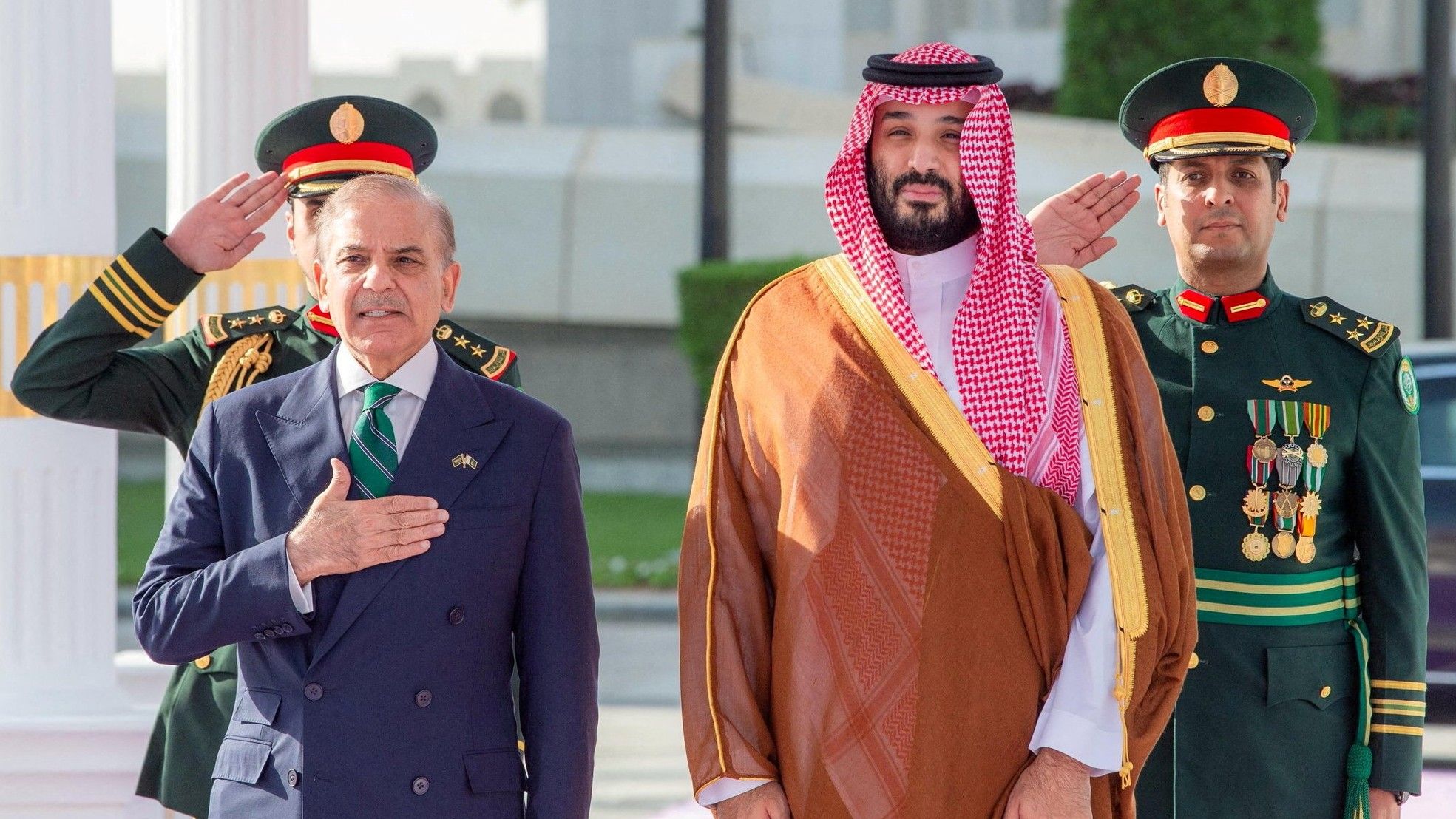Pakistan-Saudi Arabia Defense Agreement Raises Concerns for India

When Pakistani Prime Minister Shehbaz Sharif met with Saudi Crown Prince Mohammed bin Salman in Riyadh last week, they signed a significant defense agreement that strengthens ties between Pakistan and Saudi Arabia. This “strategic mutual defense agreement” has raised concerns in India, particularly given the historical tensions between India and Pakistan. The pact, which asserts that aggression against one nation will be viewed as aggression against both, has prompted a range of reactions from analysts and officials in India, who worry about the implications for regional security.
Significance of the Pact
The recent defense agreement between Pakistan and Saudi Arabia marks a pivotal moment in Middle Eastern geopolitics. While a senior Saudi official described the pact as a formalization of existing cooperation, Indian analysts perceive it as a direct threat to India’s national security. The agreement comes in the wake of heightened tensions between India and Pakistan, including a recent four-day conflict. The commitment to mutual defense raises alarms in New Delhi, where officials are concerned about the potential for increased military collaboration between the two nations.
Experts like Brahma Chellaney have pointed out that the pact reflects Saudi Arabia’s ambitions rather than Pakistan’s strength, which is currently facing economic challenges. The agreement could provide Saudi Arabia with both manpower and nuclear deterrence while signaling to India and the United States that Riyadh is willing to pursue its own strategic interests. Former Indian foreign secretary Kanwal Sibal has labeled the pact a “grave misstep,” warning that it could have serious implications for India’s security landscape.
Reactions from India
The Indian government has adopted a cautious approach in response to the defense pact. A foreign ministry spokesperson indicated that India would assess the implications of the agreement for national security and regional stability. Officials have expressed hope that the strategic partnership between India and Saudi Arabia will continue to consider mutual interests and sensitivities.
While some analysts express alarm over the potential risks, others argue that India may be overstating the threat posed by the agreement. Michael Kugelman, a foreign policy analyst, suggests that the pact does not directly hinder India and emphasizes that Saudi Arabia values its relationship with India, which is its second-largest trading partner. However, the agreement does embed Pakistan more firmly within the security framework of the Middle East, potentially complicating India’s strategic calculations.
Historical Context and Future Implications
The defense pact is not an isolated development; it formalizes a long-standing relationship between Saudi Arabia and Pakistan that dates back to the 1960s. Historically, the two nations have collaborated on military matters, with Saudi Arabia relying on Pakistan for defense support during various conflicts. This partnership has been underpinned by Saudi financial aid and military cooperation, which has included the deployment of Pakistani troops and the purchase of military equipment.
As regional dynamics shift, the implications of this pact extend beyond immediate military concerns. Analysts warn that it could reshape alliances in the region, potentially leading to a more consolidated coalition of Muslim states that could challenge India’s influence. The agreement also reflects a broader trend of declining faith in the U.S. security umbrella, as Saudi Arabia seeks to diversify its security partnerships amid rising tensions with Iran and Israel.
Geopolitical Ramifications
The geopolitical ramifications of the Saudi-Pakistan defense pact could be significant for India. While some experts argue that the agreement does not pose an immediate threat, it could complicate India’s diplomatic and economic ties with Saudi Arabia. The potential for a more robust alliance between Pakistan and Saudi Arabia may also embolden Islamabad in its dealings with New Delhi.
As India navigates this evolving landscape, it will need to recalibrate its strategies to address the shifting balance of power in the region. The pact may not only affect military dynamics but could also influence trade and investment opportunities for India in the Gulf. Observers note that the true impact of the agreement will depend on how both nations interpret terms like “aggression” and how closely they align their security objectives moving forward.
Observer Voice is the one stop site for National, International news, Sports, Editor’s Choice, Art/culture contents, Quotes and much more. We also cover historical contents. Historical contents includes World History, Indian History, and what happened today. The website also covers Entertainment across the India and World.
Follow Us on Twitter, Instagram, Facebook, & LinkedIn

